Search for peace moves outside church walls
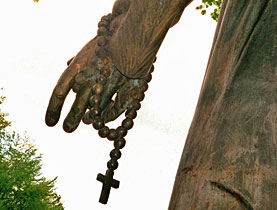
When the Swiss look for spirituality, the peace many find in nature is far more important than the inside of a church, a survey has revealed.
The magazine poll found clear differences between members of the Protestant Church and Roman Catholics and also between German and French speakers.
“We thought spirituality had become very popular in the last few years, and we wanted to know how strongly it was still connected to the traditional churches in Switzerland,” says Matthias Böhni, the editor of the Reformierte Presse.
The weekly magazine is read mainly by professionals including pastors and social workers connected to the Protestant Church.
Böhni defines spirituality as “some kind of search for silence and for mysticism”, and told swissinfo that it was perhaps something people missed in their everyday lives.
According to the survey, which was conducted by the gfs.zurich polling institute, 41 per cent of people in Switzerland found spirituality in nature, while only 16 per cent found it in church.
Over half of those belonging to the Protestant Church looked for spirituality in nature, in comparison with just over a third of Roman Catholics and just under a quarter of the followers of other religions.
Superficial spirituality
Nature as a place of spirituality was much more important for German speakers than it was for French speakers; 46 per cent of the former chose it, against only 25 per cent of the latter.
Twenty per cent of French speakers named lifestyle as the place where they sought spirituality, whereas this was the case with only three per cent of German speakers.
“Maybe the French speakers don’t have a problem with the superficial kind of spirituality. You can go to a health spa, for example, and say: It’s good for my soul, and you can also say: It’s good for my outer shape.”
“Maybe the Protestants in the German part think that’s superficial, and the French speakers don’t have this problem,” Böhni said, adding that in the future German speakers might come round to the same way of thinking.
“Maybe things that appear superficial do have a kind of power,” he suggested.
Church and society
The results reflected clear changes in society, which the churches cannot halt and which they must respond to, he said. Where once the churches were the only place people could turn toward in their spiritual search, now they are in competition with a range of other providers.
“On the one hand we were surprised how little spirituality is now associated with the church, but on the other hand, the results reflect individualism in religious matters as in others. People are practising their beliefs more and more in private and this applies to spirituality too.”
The purpose of the poll was to inform the magazine’s readers, not to tell them what to do. Nevertheless, there are certainly lessons for the churches to draw.
The poll showed the Catholics as having more spiritual awareness, which could be the result of a difference in emphasis between the two main churches.
“The Protestant Church is rather sober and intellectual, more so than the Catholics, so this isn’t so surprising,” Böhni pointed out.
One way in which the Roman Catholic Church responds to the spiritual longings of believers is in organising pilgrimages, something the Protestant Church has neglected but is now rediscovering.
The impulse for this comes mostly from the believers themselves, Böhni says. Pastors have to ask themselves why people are not coming to church as much as they used to. “One reason is perhaps that spirituality has been neglected.”
European tradition
Given how the Swiss respond to nature, perhaps it is significant that some pilgrimage sites are to be found in places where nature is at its most magnificent and awesome, such as high in the mountains.
“People choose their own kind of spirituality,” Böhni said. “Years ago we had the one and only truth, the Church, and now we are open. There are many ways in which you can believe. I don’t think we only want one kind of belief.”
Nevertheless, the churches should have a special role, he thinks.
“It would be better if the churches were more connected with spirituality. The churches should do something to inform people that spirituality has a tradition in Europe and that the churches are strongly involved in this tradition.”
The survey also took in people who followed non-Christian religions and people with no religion at all.
Nearly a quarter of the respondents said they had no opinion about where spirituality could be found. “But that doesn’t mean they don’t have any experience in a spiritual sense,” Böhni said.
Although people with no religion were more likely than believers to state that spirituality was of little or no importance to them, it plays an important role for more than a quarter of respondents.
In the case of people following non-Christian religions, 54 per cent regarded spirituality as an important part of their lives.
swissinfo, Julia Slater
Membership of the two main Christian churches in Switzerland, the Roman Catholics and Protestants has shrunk over the past 30 years.
At the time of the last census in 2000 they accounted for 75% of the population, against 95% in 1975.
Smaller religious groups have grown in the same period, including Islam and small Christian denominations, like the Evangelical Free churches, Jehovah’s Witnesses, New Apostolic Church and the Christian Orthodox churches.
In German-speaking Switzerland, where pluralisation is greatest, 10.5% of the population belong to religious groups other than the two main churches.
Over 15% of the population do not belong to any religious group, but the proportion varies widely from area to area.

In compliance with the JTI standards
More: SWI swissinfo.ch certified by the Journalism Trust Initiative
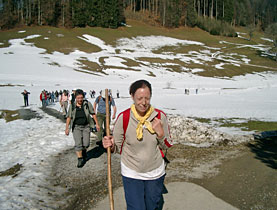
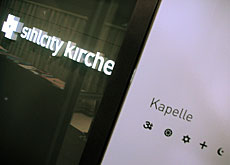
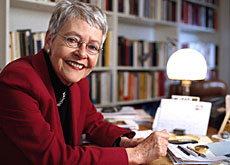
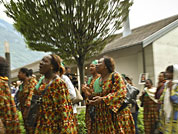
You can find an overview of ongoing debates with our journalists here. Please join us!
If you want to start a conversation about a topic raised in this article or want to report factual errors, email us at english@swissinfo.ch.